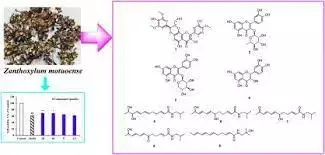- Home
- Medical news & Guidelines
- Anesthesiology
- Cardiology and CTVS
- Critical Care
- Dentistry
- Dermatology
- Diabetes and Endocrinology
- ENT
- Gastroenterology
- Medicine
- Nephrology
- Neurology
- Obstretics-Gynaecology
- Oncology
- Ophthalmology
- Orthopaedics
- Pediatrics-Neonatology
- Psychiatry
- Pulmonology
- Radiology
- Surgery
- Urology
- Laboratory Medicine
- Diet
- Nursing
- Paramedical
- Physiotherapy
- Health news
- Fact Check
- Bone Health Fact Check
- Brain Health Fact Check
- Cancer Related Fact Check
- Child Care Fact Check
- Dental and oral health fact check
- Diabetes and metabolic health fact check
- Diet and Nutrition Fact Check
- Eye and ENT Care Fact Check
- Fitness fact check
- Gut health fact check
- Heart health fact check
- Kidney health fact check
- Medical education fact check
- Men's health fact check
- Respiratory fact check
- Skin and hair care fact check
- Vaccine and Immunization fact check
- Women's health fact check
- AYUSH
- State News
- Andaman and Nicobar Islands
- Andhra Pradesh
- Arunachal Pradesh
- Assam
- Bihar
- Chandigarh
- Chattisgarh
- Dadra and Nagar Haveli
- Daman and Diu
- Delhi
- Goa
- Gujarat
- Haryana
- Himachal Pradesh
- Jammu & Kashmir
- Jharkhand
- Karnataka
- Kerala
- Ladakh
- Lakshadweep
- Madhya Pradesh
- Maharashtra
- Manipur
- Meghalaya
- Mizoram
- Nagaland
- Odisha
- Puducherry
- Punjab
- Rajasthan
- Sikkim
- Tamil Nadu
- Telangana
- Tripura
- Uttar Pradesh
- Uttrakhand
- West Bengal
- Medical Education
- Industry
High visceral fat scores linked to emergence of kidney stones

High visceral fat scores (METS-VF) is associated with the emergence of kidney stones suggests a new study published in the Frontiers in Endocrinology
The lifetime occurrence rate of kidney stones is 14%, making it one of the most prevalent urological conditions. Other contributing elements, such as obesity, diabetes, diet, and heredity, are also taken into account. Our research sought to explore the potential link between high visceral fat scores (METS-VF) and the occurrence of kidney stones, as a means of understanding how to prevent them.
This research utilized data from the National Health and Nutrition Examination Survey (NHANES), mirroring the demographics of the United States. We carried out an in-depth analysis of the connection between METS-VF and kidney stones, based on data from 29,246 participants in the National Health and Nutrition Examination Survey spanning 2007 to 2018, involving logistic regression, segmentation, and dose-response curve analysis.
The study of 29,246 potential participants found that METS-VF was positively associated with the prevalence and progression of kidney stones. After subgroup analysis by gender, race, blood pressure, and blood glucose, our results showed that the ORs for METS-VF and kidney stones were (1.49, 1.44) in males and females, respectively; while in Mexicans, whites, blacks, and In other populations, the OR values were (1.33, 1.43, 1.54, 1.86); in hypertensive and normal populations, the OR values were (1.23, 1.48); in diabetic patients and normoglycemic patients were (1.36,1.43). This proves that it works for all groups of people.
The studies demonstrate a strong connection between High visceral fat scores (METS-VF) and the emergence of kidney stones. It would be beneficial to investigate METS-VF as a marker for kidney stone development and progression in light of these findings.
Reference:
Guo, Zhenyu, et al. "Could METS-VF Provide a Clue as to the Formation of Kidney Stones?" Frontiers in Endocrinology, vol. 14, 2023, p. 1166922.
Keywords:
METS-FV, associated, emergence, kidney stones, Guo, Zhenyu, Frontiers in Endocrinology
Dr. Shravani Dali has completed her BDS from Pravara institute of medical sciences, loni. Following which she extensively worked in the healthcare sector for 2+ years. She has been actively involved in writing blogs in field of health and wellness. Currently she is pursuing her Masters of public health-health administration from Tata institute of social sciences. She can be contacted at editorial@medicaldialogues.in.
Dr Kamal Kant Kohli-MBBS, DTCD- a chest specialist with more than 30 years of practice and a flair for writing clinical articles, Dr Kamal Kant Kohli joined Medical Dialogues as a Chief Editor of Medical News. Besides writing articles, as an editor, he proofreads and verifies all the medical content published on Medical Dialogues including those coming from journals, studies,medical conferences,guidelines etc. Email: drkohli@medicaldialogues.in. Contact no. 011-43720751


